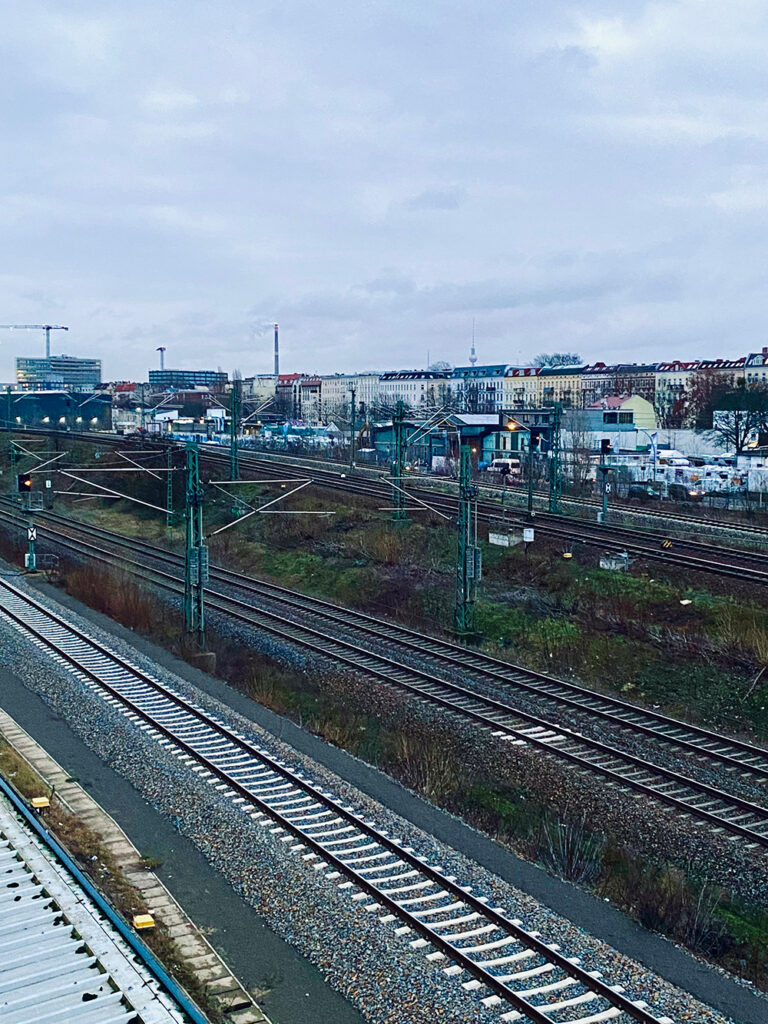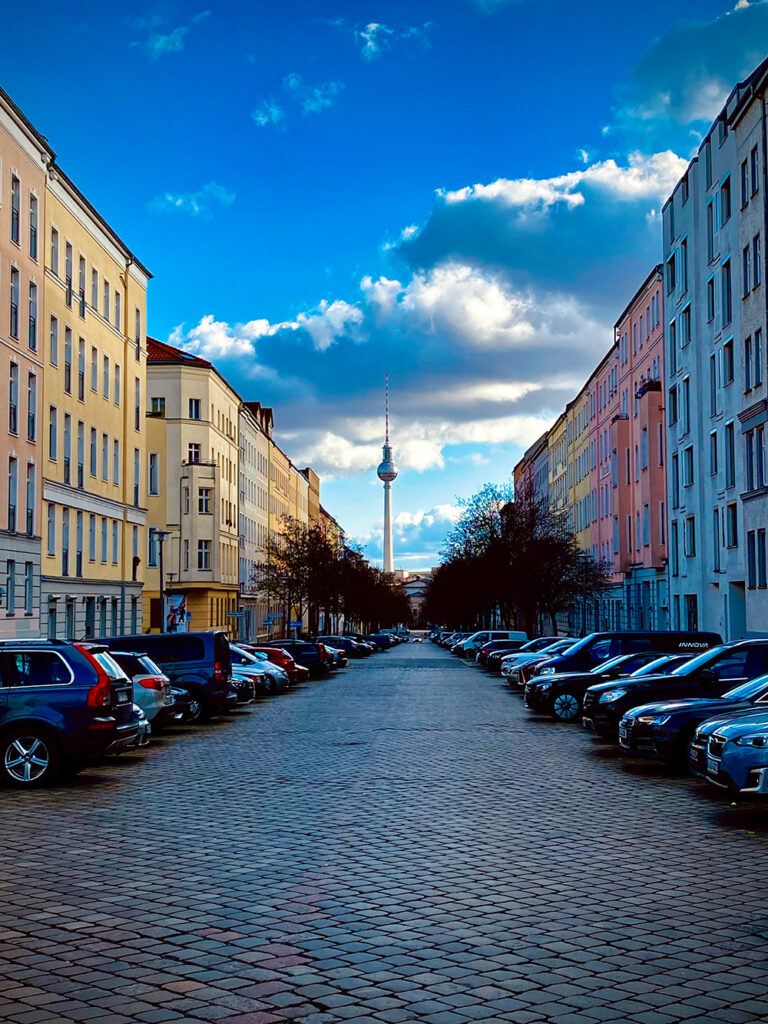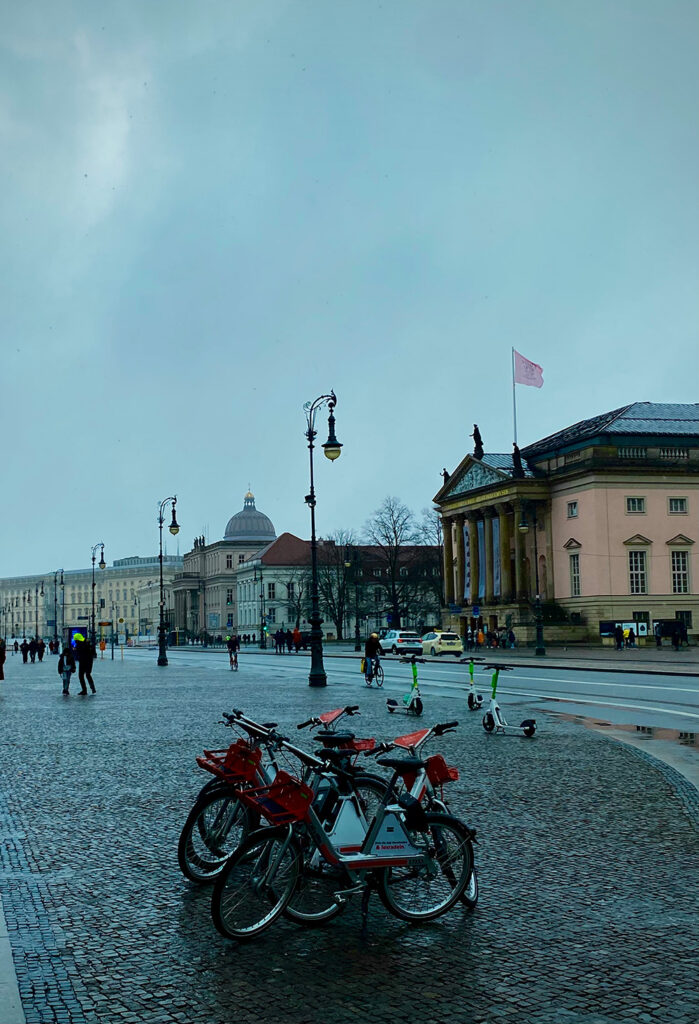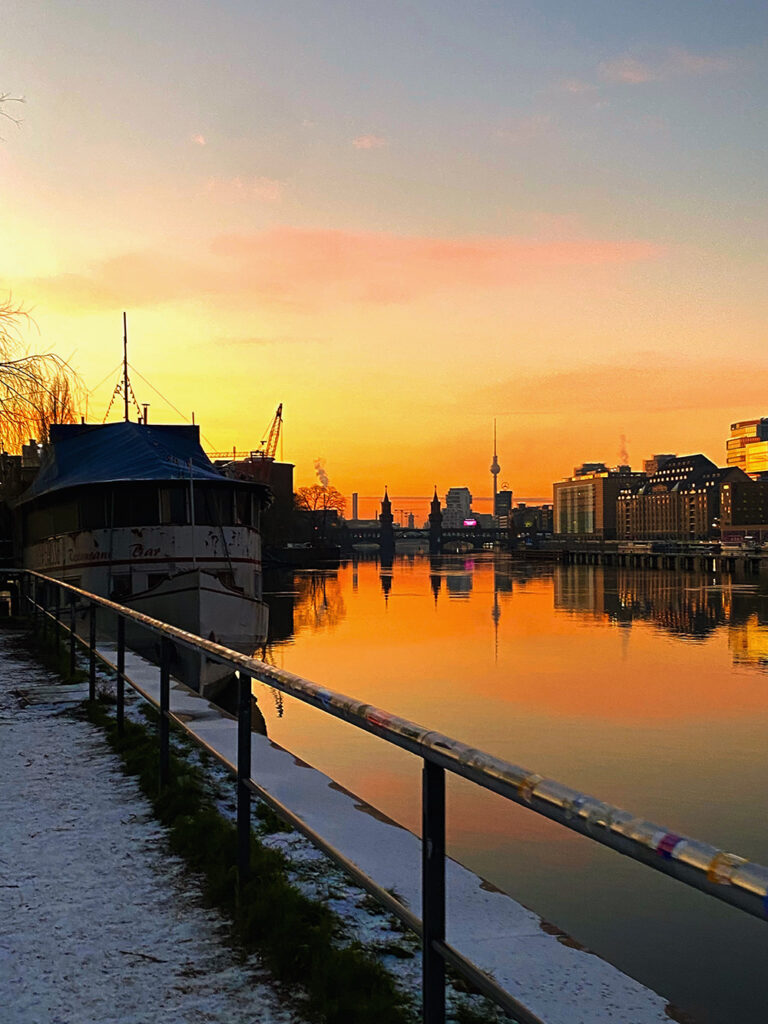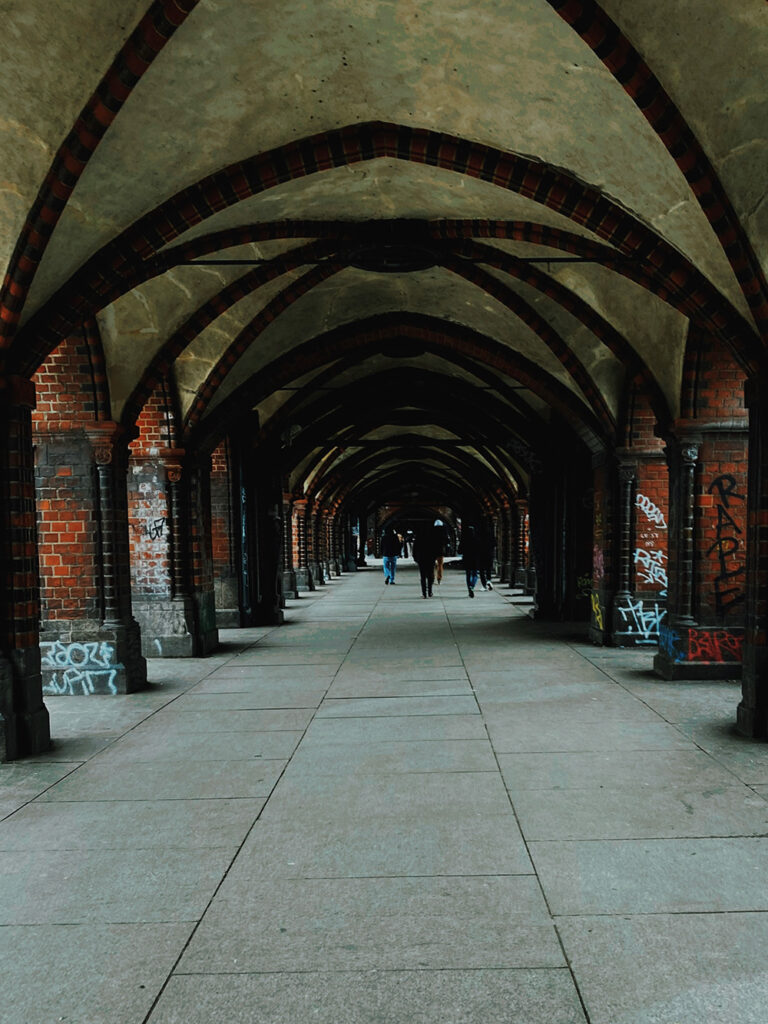Embarking on the journey of working remotely in Berlin is an exciting Endeavor, promising a fusion of work, culture, and lifestyle in one of Europe’s most dynamic and unique cities. In this comprehensive guide, I will share the intricacies of remote work in Berlin, offering insights into co-working spaces, accommodation, transportation, budgeting, work-life balance, essential legal and visa considerations with my personal experiences from these. Whether you’re already in Berlin or planning your remote work adventure, join me as we explore the diverse facets of working remotely in this thriving metropolis. Berlin, with its creativity, innovation, and charm, is ready to be your next remote work destination.
Note: many or all products featured here are from partnerships which do compensate me. However this does not influence my evaluations as my opinions are my own and brought upon from experience and using these products.
Table of Contents
Overview of Working Remotely in Berlin – My experience
After my two month stint in Munich I needed to get a Visa to stay in Europe. This led me to finding a rental in Berlin! I packed my bags and headed north and of course did a couple of short stays in Nuremberg, Leipzig, Dresden and Potsdam before moving into Berlin for Initially 3 months. I moved into a room in a 3-bedroom flat in Friedrichshain thanks to Housing Anywhere. I was lucky to have a good desk setup in my room and great roommates, so this become my main setup for the 3 months. I probably picked the worst time to be in Berlin during the winter months so there was very little sunlight with most days being cloudy or ending quite early, so I had to adapt during my stay to stay motivated for work. I love light and used some LEDs for some moody lighting to help boost productivity but also due to working out of Australia, still I had very early work meetings. The great thing about German apartments is that they are very warm, and I only wore a shirt when inside. I actually found it colder in my house in Australia during winter due to the heating in comparison. So don’t fear the German winter because it still is very lively and has an awesome atmosphere as there are regular events and people still outdoors. I attended some parades, concerts and other festivals during my stay. Special mention to the Christmas markets, these are a must to go and try some Glühwein. However, my visa situation was a nightmare, and it was a little challenging to organise and get. I’ll cover more on this below as my time in Berlin was extend because from this ( I was not complaining about this). Berlin took me some time to adjust as I will say it is a truly unique city with a different vibe that I have not experienced before and certainly different to Australia. However after living in the city, I become to love it for how it keeps being authentic and true to itself. The people, the culture is absolutely one of a kind and something that I definitely will take away from my experience even though I got quite sick over Christmas.
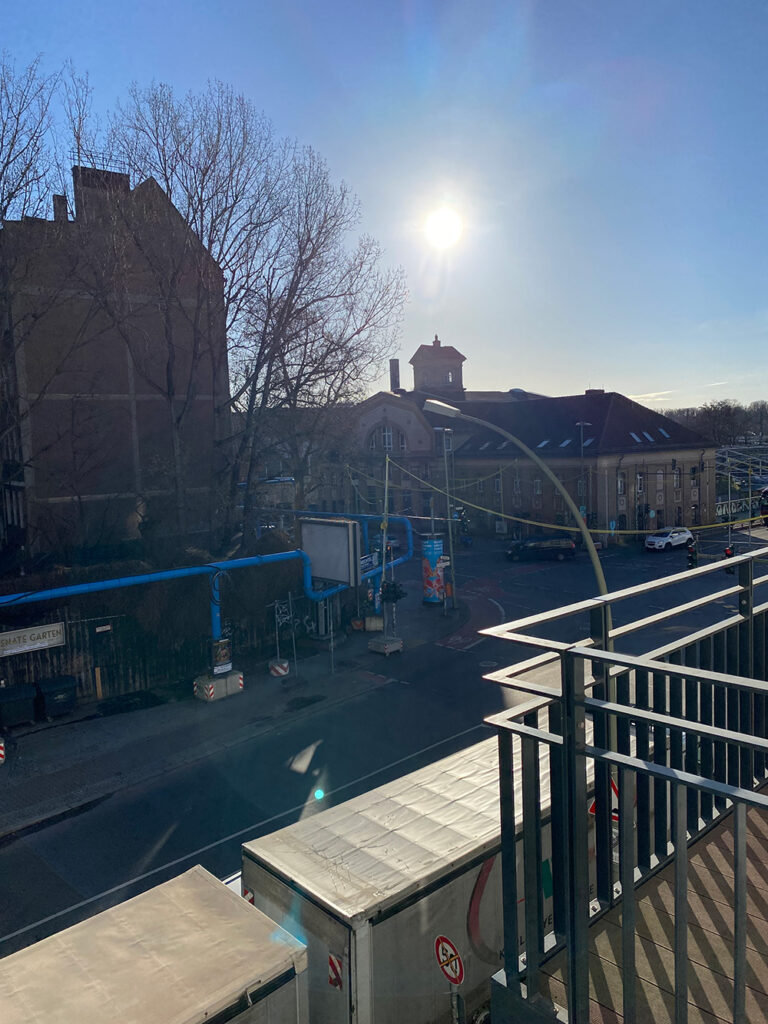
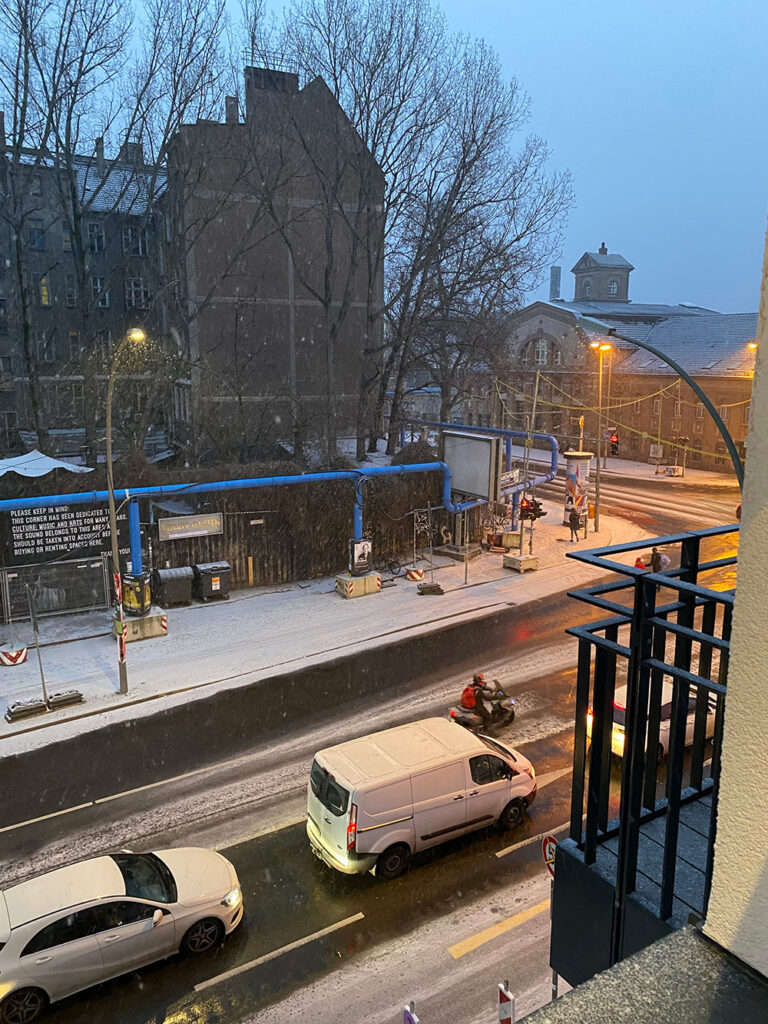
Working Remotely in Berlin: My space and Co-working Spaces
1. My space:
In my room I had a pretty good desk setup which became my ideal desk setup while being in Berlin due to affordability and general convenience. Living during the winter in Berlin made my desk setup even more appealing has it definitely isn’t motivating to go outside in the cold and darkness. I did fit my room with some additional LED lighting to make sure I had some further mood motivation while working. However sometimes I did opt for working in other places and Berlin is very well connected for having great co-working spaces. See my post on your ideal remote work schedule for further information.
2. Factory Berlin
Situated in the heart of Berlin, Factory Berlin is a renowned co-working space that attracts a diverse community of innovators, creators, and remote workers. With its modern infrastructure, various membership options, and a focus on fostering collaboration, Factory Berlin stands out as a hub for professionals striving for excellence.
3. WeWork
WeWork, a global co-working giant, has a significant presence in Berlin. Their spaces offer a blend of convenience and flexibility, making it a preferred choice for many remote workers. From private offices to shared desks, WeWork provides a range of options to accommodate different work preferences. This is probably the most well known co-working space and is continued to be a great option especially for digital nomads.
4. Betahaus
Betahaus, located in the Kreuzberg district, is another favourite among remote professionals. Known for its creative atmosphere and start-up-friendly environment, Betahaus offers co-working memberships, meeting rooms, and event spaces, making it a versatile choice for those seeking a dynamic workspace.
Co-working spaces in Berlin are not only about providing a desk and a chair. They are about creating a community, fostering innovation, and enhancing productivity. When choosing a co-working space, consider factors such as location, facilities, community, and pricing to find the one that aligns with your needs and enhances your remote working experience.
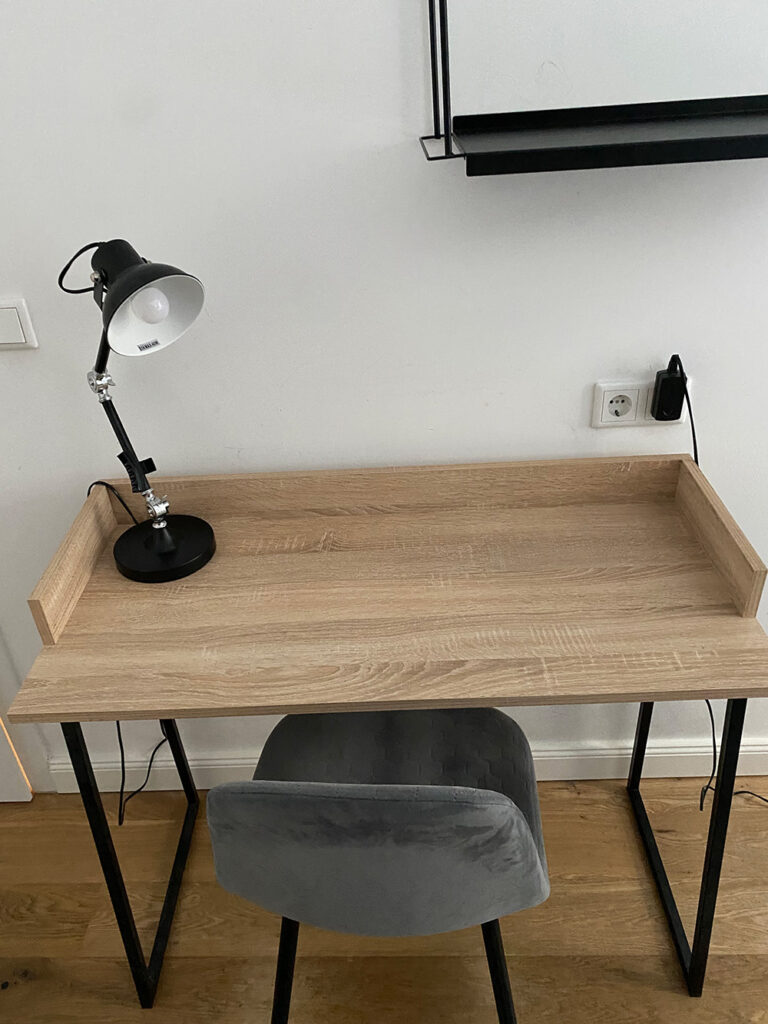
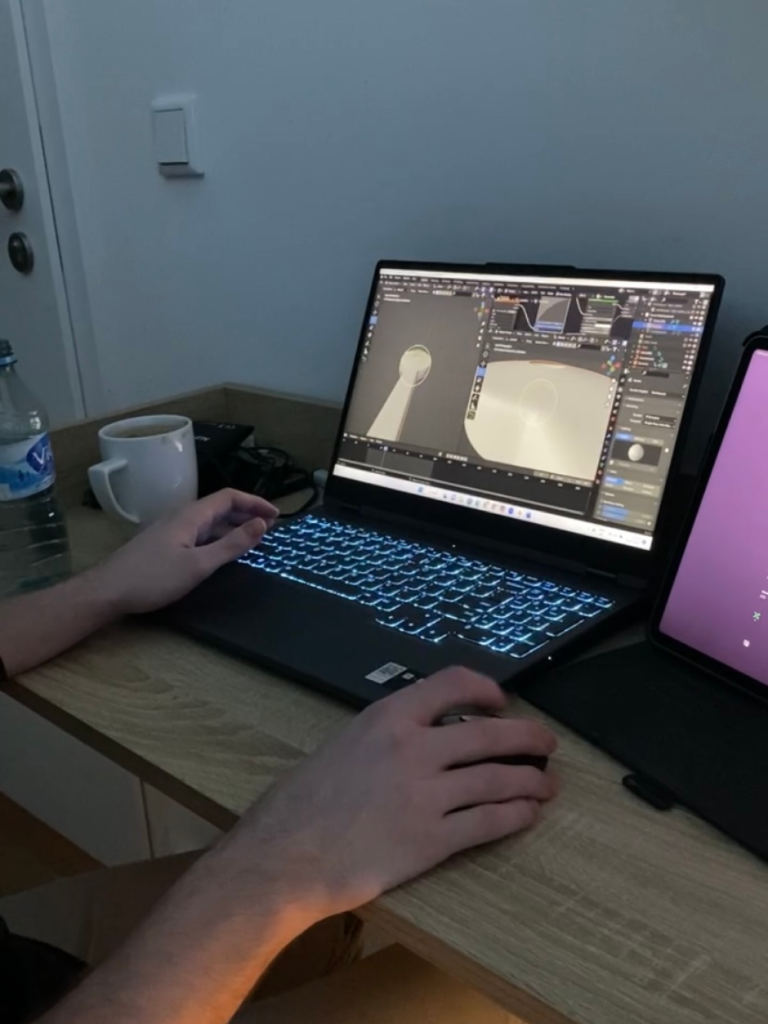
Accommodation for Remote Workers
Berlin has become a hub for many people with its rich culture and many work opportunities which draws people to the city. This has made accommodation particularly difficult for people looking for an apartment or looking for longer stays as prices continue to go up. If you’re wanting to be in Berlin long term then I would definitely recommend going there first and trying to meet people as I’ve seen a lot of people get a good deal on places by simply knowing the right people and from this get actually quite affordable places to stay. As I knew nothing and no one before going to Berlin I had to take a chance on accommodation. I managed to find a place using Housing Anywhere, a platform designed for students and working professionals looking for short/long term stays in various cities across Europe. They charge a small service fee but give you 48 hrs to first inspect the place before they transfer your money to the landlord. This is extremely valuable especially with scams being incredibly frequent in Europe. I paid 890 euros a month for one bedroom in a 3-bedroom apartment in Friedrichshain. This is quite a lot but was going up when I left which is a bit ridicules to see. If you’re only planning on staying in Berlin for short term (a few months) then I would definitely recommend Housing Anywhere (if you’re not a local). Another great alternative is Booking.com for really short stays. If you want a better deal, then you can also use Spotahome which is a platform that operates pretty much the same as Housing Anywhere. I also have a special discount with this platform of 20% of your month, just use my code JORDAN20. If you’re wanting more details on these options, then check out my —- blog post to see more. Alternatively, you can contact me directly and I can help assist you with some options.
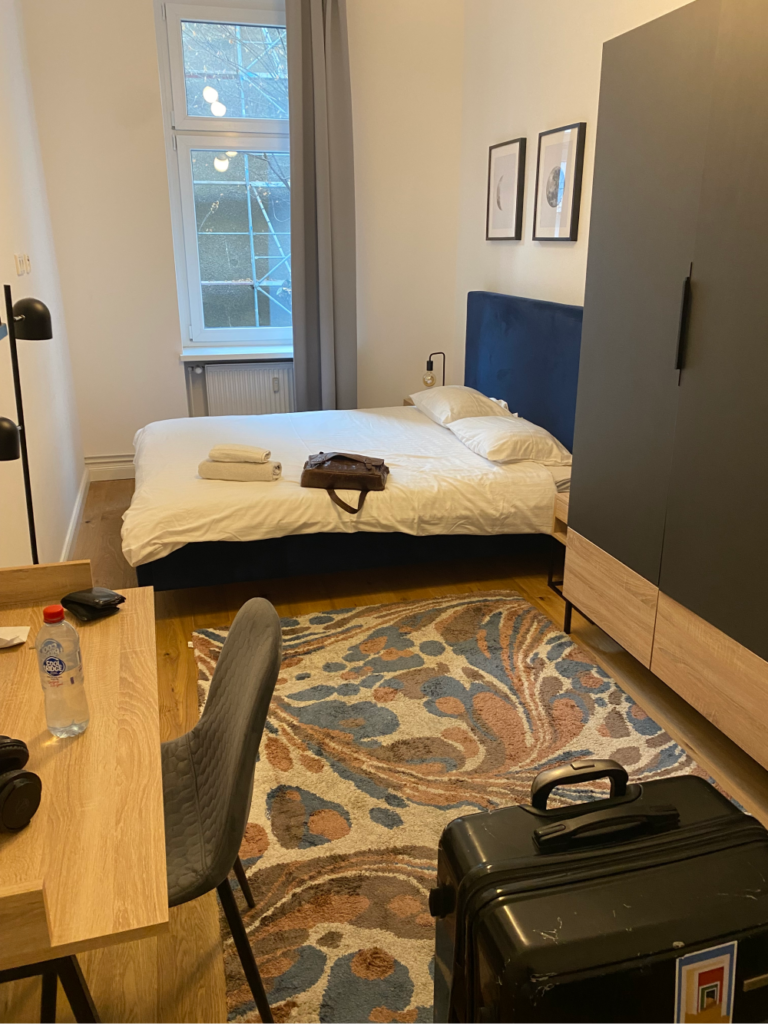
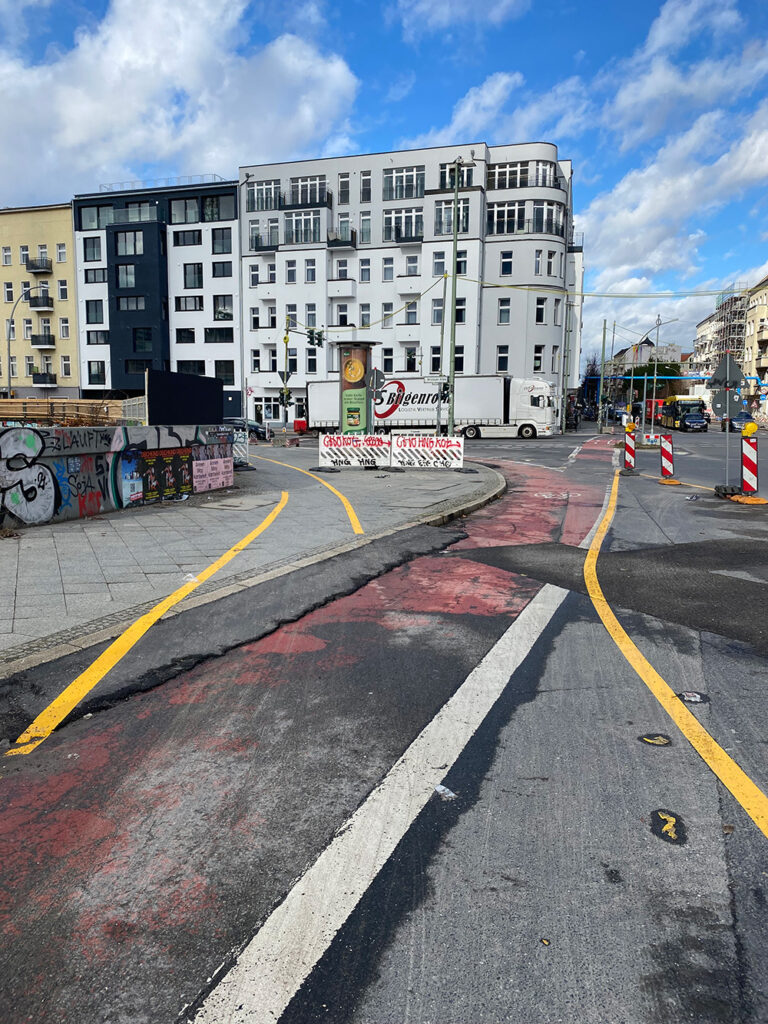
Transportation and Commuting: Navigating Working Remotely in Berlin
1. Berlin Public Transportation
Berlin boasts an extensive and efficient public transportation network. The BVG (Berliner Verkehrsbetriebe) operates an integrated system of subways (U-Bahn), trams, buses, and ferries, ensuring you can reach any part of the city with ease. The use of an integrated ticketing system makes it convenient to switch between various modes of transport. After travelling to 10 countries so far in the EU I still think Berlin has had the best transportation network by far. It is super convenient and is so well covered offering easy access for everyone. Of course, they can be packed with people in peak hrs but I have found that most our well maintained and a safe place to travel.
2. Biking and E-transport in Berlin
Berlin is a bike-friendly city, offering dedicated bike lanes and numerous bike-sharing services. Biking is a popular commuting option, allowing you to enjoy the city’s sights and stay active while traveling to your workspace. Many remote workers in Berlin prefer biking for short to medium distances. It is wise to note that biking is drastically reduced in the winter months due to the coldness and is why a lot of people rent bikes as well which is another convenient reason to bike in Berlin. E-transport is also very popular in Berlin with many scooters and bikes service like Lime can be easily accessible throughout the city.
3. Car Rentals and Ridesharing
For ultimate flexibility in commuting, you can opt for car rentals or ridesharing services like Uber, Lyft, Bolt or local alternatives. These options are ideal when you need to travel to remote areas or carry equipment for work. However, given the efficiency of public transport, cars are often not necessary for daily commuting in the city. I used these a couple of times for when I had time constraints or was moving equipment/luggage around because it was super handy, and I think I never waited more then 5 mins for a ride.
4. S-Bahn (Suburban Trains)
The S-Bahn system in Berlin provides rapid transit services, connecting the city centre to the outskirts and surrounding areas. It’s a reliable option for those living in suburban areas of Berlin, offering frequent trains and a well-connected network. Probably my most used transport as I had great access to it. I think I used the ring everyday I was in Berlin. Sometimes you would see delays, but this actually very rarely happen to me.
5. Walking
Berlin is a pedestrian-friendly city with many attractions, shops, and co-working spaces within walking distance. If you’re fortunate to live close to your workplace or a co-working space, walking can be a pleasant and eco-friendly commuting choice. I always prefer to walk as I love the fresh air and exploring with a coffee. During winter this is a little tricky but still, Berlin offers great walking spaces for commuters.
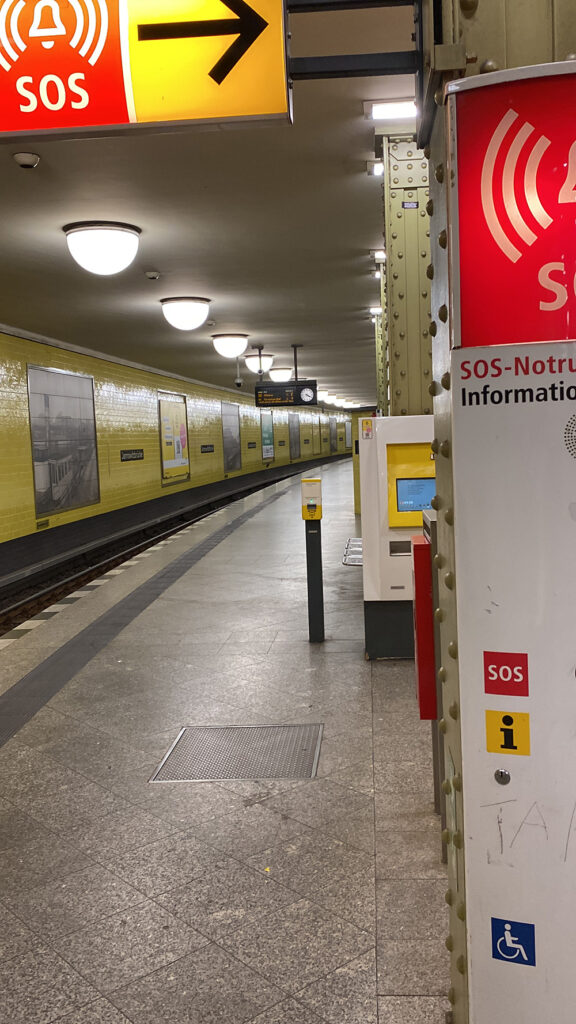
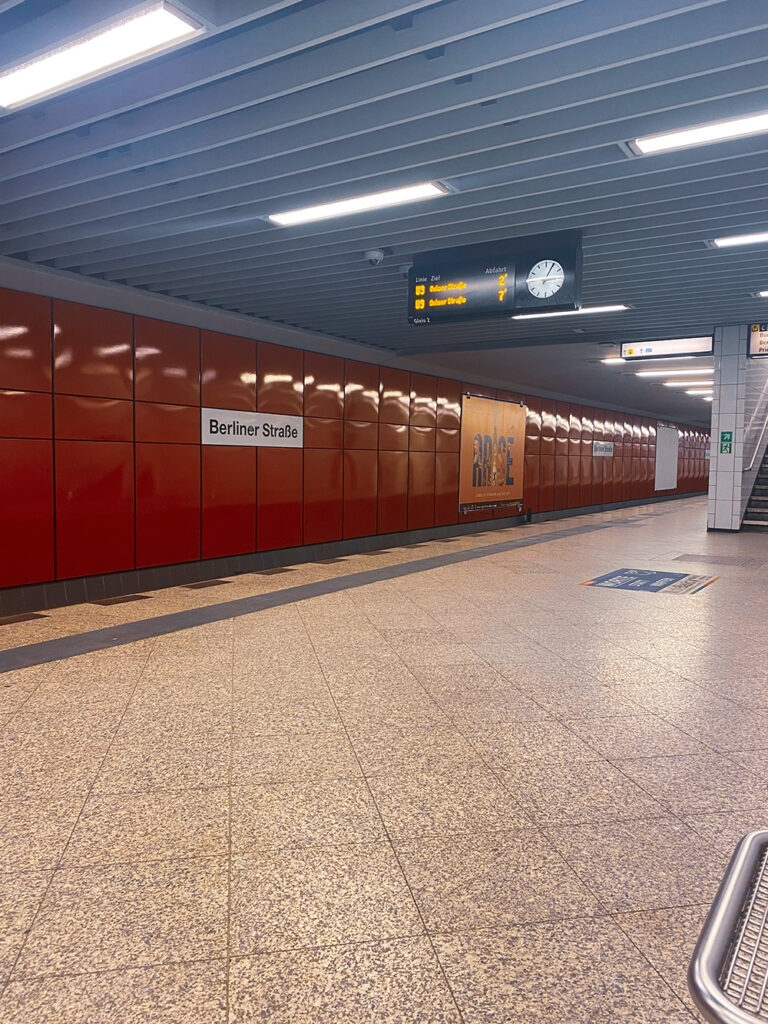
Cost of Living and Budgeting: Managing Finances for Working Remotely in Berlin
1. Housing Costs
Housing is a significant component of the cost of living. Berlin offers a range of accommodation options, including apartments, shared flats (WG), and co-living spaces. Prices vary based on the location, size, and type of accommodation. Mitte and Prenzlauer Berg tend to be more expensive, while districts like Neukölln and Wedding offer more affordable choices. I lived in Friedrichshain which I absolutely loved. I didn’t know anything about the area before hand, but my place was situated above a bar, was very close to the river and Treptower Park. It was very well connected and everything you needed was close by. It was a little expensive as I was paying 890 euros a month for a room in a 3-bedroom apartment, but I was just able to afford this. Highly recommend this area and also near Warschauer Strabe (a little closer to centre) these spots where my favourite in Berlin.
2. Food and Dining
Berlin has a diverse culinary scene, and you can find options to suit all budgets. Cooking at home is often cost-effective, with grocery costs varying based on where you shop. Alternatively, dining out can range from affordable street food to high-end restaurants, allowing you to choose based on your budget. I mainly cooked in Berlin and every once in awhile I would eat at a restaurant which weren’t that expensive and found really good food. Berlin also has great access to food delivery services like Wolt and Uber Eats.
3. Transportation Expenses
Berlin’s public transportation system is both efficient and economical. The cost of monthly or yearly public transport tickets is relatively low, providing substantial savings compared to owning a car. Biking is another cost-effective transportation option. In Berlin you don’t need to scan your ticket before hand so you could get lucky without a ticket but if caught in the train will result in a 60 euro fine. I found a monthly ticket for 9 euros from memory but was never asked to show this through my stay in Berlin.
4. Utilities and Internet
Utilities, including electricity, water, and heating, are usually additional costs to consider. Internet expenses are relatively reasonable and vary based on the provider and the plan you choose. This consideration wasn’t necessary for me as my apartment had this all included which was fantastic and defiantly made it easier to manage.
Recreational Activities and Well-being: Enhancing Work-Life Balance in Berlin
Maintaining a healthy work-life balance is integral to a successful remote work experience. Berlin, a city brimming with culture and recreational opportunities, offers a multitude of activities to support your well-being outside of work. In this guide, we’ll explore the recreational options in Berlin that contribute to a fulfilling lifestyle for remote workers.
1. Parks and Green Spaces
Berlin is known for its abundant green spaces, providing serene spots for relaxation, exercise, and picnics. Iconic parks like Tiergarten, Volkspark and Treptower Park are ideal for unwinding amidst nature, promoting well-being and a sense of tranquillity. Unfortunately, I personally didn’t get to see the summer park vibe and mostly had the winter vibe which makes most of the parks pretty quiet. I will say that during the warmer days the parks where a fantastic place to relax and always had a great vibe with great cafes and bars nearby.
2. Cultural Events and Museums
Berlin boasts a rich cultural scene, offering a myriad of museums, galleries, and exhibitions. Immerse yourself in art, history, and contemporary culture by visiting renowned places such as the Pergamon Museum and East Side Gallery. A very handy tip is to go to museums on the first Sunday of the month as they are all free on these days. Please note that this means they are very popular so best to go in early to avoid missing out.
3. Fitness and Wellness Centres
Prioritize your well-being by engaging in fitness activities at Berlin’s various gyms, yoga studios, or wellness centres. From intense workouts to relaxing yoga sessions, you can choose activities that align with your fitness goals and boost your overall health. I went to Super Fit during my time and unfortunately would highly not recommend using their services. I was treated very poorly as the staff lied to me about my membership resulting in an ongoing battle with the gym that I ultimately couldn’t fight so got scammed out a bit of money. Please be carefully with gyms and be 100% sure of everything before committing. This was the only negative experience I had in Berlin.
4. Music and Concerts
Berlin is renowned for its diverse music scene, offering concerts and performances across various genres. Attend live music events to unwind, socialize, and enjoy the therapeutic effects of music on your well-being. Incorporating these recreational activities into your routine helps maintain a healthy work-life balance. Take time to explore Berlin’s cultural offerings, engage in physical activities, and nourish your soul with enriching experiences, contributing to a fulfilling lifestyle as a remote worker. Berlin of course known for its techno scene has a great selection of different events for this genre but also caters to other genres. I even got to see my favourite band play Gang Of Youths the first week I moved there.
5. Nightlife
Similarly, to the music and concerts which feeds into Berlins world renown Nightlife which is something that is extremely unique and amazing about Berlin. For me it was something very different to Australia with how late the nightlife started and then for how long it went for which was crazy. I really loved the respect which is shown when going out in Berlin even though some places are extremely hard to get in like Berghain but when you’re in bars or clubs everyone is extremely respectful and even with some clubs having the no photo policy creates a very safe space for people. This was very unique for me coming form a place that heavily regulates and controls these venues and found this creates almost a negative as seeing the comparison of Berlin I feel the culture is a lot stronger with people just enjoying the energy of the space. I didn’t go to many of the bigger clubs during my stay but defiantly the sound, music and overall vibe of Berlin slowly grew on me and something that I become to really like after some time.
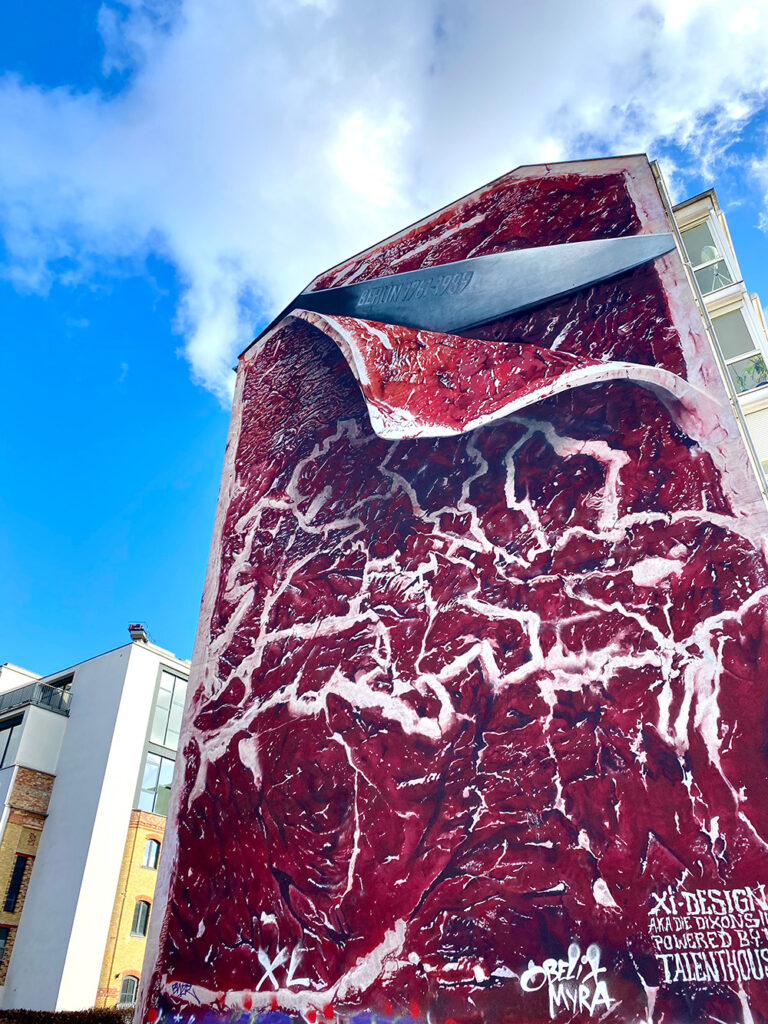


Legal and Visa Considerations: Navigating Regulations for Working Remotely in Berlin
Understanding the legal and visa considerations when planning to work remotely in Berlin is essential for a smooth transition. Germany, including Berlin, has specific regulations regarding work visas and residency requirements. I’ll outline the legal aspects and visa considerations, offering you valuable insights to ensure compliance and a hassle-free stay while working remotely.
1. Types of Visas
If you plan to work remotely from Berlin, you’ll need to secure the right visa. The two primary visa options for remote workers are the National Visa (Type D) and the Freelance Visa. The National Visa is suitable for those employed by a company outside Germany, while the Freelance Visa is ideal if you work as a freelancer or self-employed individual. The alternative which I got was a working holiday visa which is just a one-off visa.
2. Required Documentation
When applying for a visa, specific documentation is mandatory. This includes a valid passport, a letter of employment or contract from your employer, proof of accommodation, and financial documentation demonstrating your ability to support yourself during your stay as well as health insurance and proof of funds. Please be aware that Germany operates with paper so be prepared and have everything printed out.
3. Duration and Renewal
The National Visa typically allows for a stay of up to 90 days, after which you’ll need to register at the local registration office (Einwohnermeldeamt). For longer stays, you’ll need to apply for a residence permit (Aufenthaltstitel) that aligns with your work circumstances.
4. Health Insurance
Health insurance is mandatory in Germany. You’ll need to obtain health insurance that meets the country’s requirements. Depending on your visa type and situation, you may opt for private or public health insurance. I changed to using Feather which costs me 72 euros a month.
5. My Process for getting a Visa:
For my Visa it was a long process. I first had to register in Berlin. This part was actually quite easy, and I got an appointment within a week of my stay in Berlin. I will say I had some help from my German friends in Munich which made life a lot easier for me. Unfortunately, I left my Visa quite late and only started trying to get an appointment about 60 days into my 90-day period in Europe. I was constantly refreshing and managed to secure an appointment about 130 days into my stay. I didn’t know if I could stay in Germany with this appointment and was very difficult to contact the Visa office, but after some time I received confirmation that I could in fact stay if I had an appointment. This actually did me a huge favour as my visa started from my appointment which kind of let me have an extra 130 days in Europe. I got the working holiday Visa which I just had to prove I could support myself and had health insurance plus residency. Unfortunately, this is a one off visa and if I wanted to stay in Europe I would have to apply for a different visa at the end of this period.
Working Remotely In Berlin: Conclusion
In the vibrant landscape of Berlin’s remote work scene, I found a thriving community and diverse working spaces that fuelled my productivity. Pairing this with an array of accommodation options, seamless transportation, and a manageable cost of living (if you know the right people), Berlin emerges as a hub for remote professionals. Balancing work and life becomes effortless amidst the city’s rich cultural experiences and accessible recreational activities. Understanding legal and visa considerations adds to the appeal, ensuring a smooth and enjoyable journey into the heart of remote work in this lively city. Berlin invites you to step into a fulfilling remote work adventure, where work, lifestyle, and innovation converge harmoniously. If you need any further information on Berlin or my experience, please feel free to contact me.
If you would like more information or want help about working remotely in Berlin and travel, please feel free to contact me for more.
